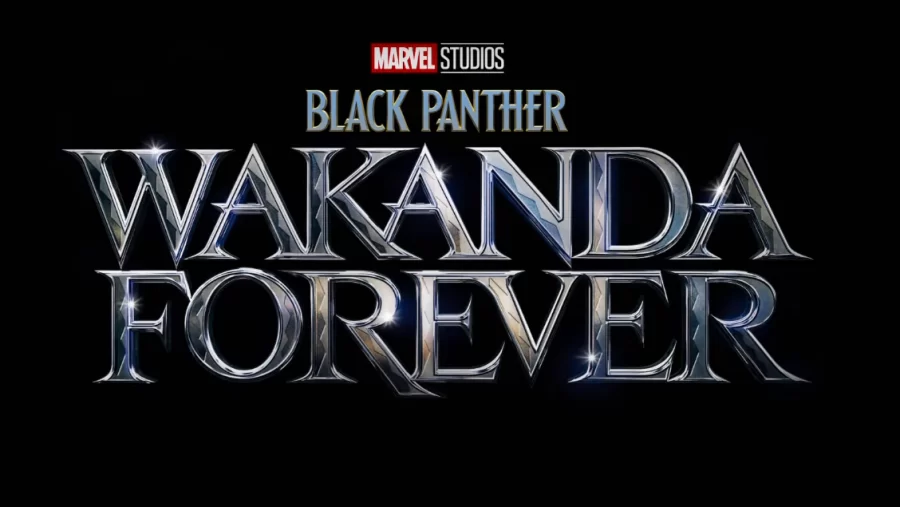Black Panther: Wakanda Forever is the adequate savior of Marvel’s fourth phase
November 22, 2022
The opening weekend of Black Panther: Wakanda Forever has passed, and Marvel has scraped by yet again. A lot of pressure rested on this movie following the tragic death of Chadwick Boseman, who played king T’Challa in the original Black Panther movie. Marvel was also under stress for this film due to the underwhelming quality of its other Phase four projects. Despite this, I walked into the theater cautiously optimistic and hoping the resources on other projects were depleted so they could be allocated to this film – and I was right.
The CGI, cinematography, and overall graphics quality are outstanding, especially compared to what we’ve seen from the MCU recently. Camera angles add to the emotional scenes, giving them a genuine, raw feeling. Nothing seems forced when it comes to the CGI and graphics, either; there are crisp details and stunning visuals despite the difficult setting of a completely fictional world – including the hard-to-tackle underwater location.
Also a relief is the ratio of humor to seriousness. The film does not rely on sarcasm or pointless jokes to carry it to the end and while there are some laugh-out-loud quips, they don’t come at the expense of important scenes.
Black Panther: Wakanda Forever also differs from the rest of Phase four Marvel because it doesn’t include excessive cameos or focus heavily on seeds for the future like in She-Hulk or Doctor Strange: Multiverse of Madness. Black Panther, in turn, has the ideal balance of standalone film quality while maintaining its piece in the larger puzzle of the MCU, and it’s exactly what fans were looking for.
Apart from logistics, the movie’s greatness also comes from excellent character development, clear themes, strong dialogue and writing, and a focus on the present.
Also notable is that Chadwick Boseman’s death is respected and honored by the movie as there is no CGI or recasting, but the death of the actor is not brushed aside either. Following a beautiful recreation of the famous Marvel introduction dedicated entirely to T’Challa’s Black Panther, the film centers around a theme of grief and loss. Boseman’s character mirrors his own death with an illness unbeknownst to the public until it is too late. The sequel handles the situation as flawlessly as possible, and fans are grateful.
The film leaves fans satisfied, but not necessarily wanting more. So what’s this missing piece? What stops this movie from being the sensation fans have craved since Spider-Man: No Way Home?
The plot is easy to follow; there are no crazy loops, twists or timelines. It’s simple and straightforward. On one hand, it is a nice step back for Marvel fans to be able to enjoy the movie for what it is instead of trying to connect all the dots in their heads. However, the simplistic nature of the plot leaves a gap because it does not pair well with the contrasting goal of complex themes and character development. That is where the villain comes in. Namor is a weak antagonist. He only moves our protagonist forward when the film’s more central events couldn’t do so. He’s convenient. No remarkable or well-written villain is convenient. The character’s purpose is in line with the regurgitated mindset Marvel has beaten dry: I want to take over the world because it wronged me long ago.
The repetitive nature of the villain is also extended to the entire plot; a recycled narrative is reflected throughout the movie. We’ve seen it time and time again, and it’s exactly what keeps this movie out of the Marvel history books. It is tied together with the same formula superhero movies have exhausted over the past decade; a safe and reliable story that blurs together with all the rest. Parallels to earlier Marvel films make this movie great because they provide fans with a nostalgic experience; a feeling the rest of phase four hasn’t been able to match.
However, this congruency is simultaneously exactly what makes this movie unremarkable. Fans would have rather seen a new perspective with the same theme instead of a desperate attempt to replicate past success.
Still, Black Panther: Wakanda Forever was able to break the barriers of Phase four Marvel with impeccable acting, particularly from Angela Bassett and Letitia Wright. Boseman’s death made the emotion in this movie genuine for the actors instead of a mere performance, and this is felt minutes into the film.
Overall, the movie’s faults can be overlooked by its successes. This film corrects most, if not all, faults of other Phase four projects, effectively treating fans with a breath of fresh air we can only hope will continue and restore the widely missed magnificence of the Marvel Cinematic Universe.








Noah Preston • Nov 30, 2022 at 9:56 am
Love it, couldn’t have said it better. I was happy that Marvel finally came out with a good movie this phase and it gives me hope for a better Phase 5.